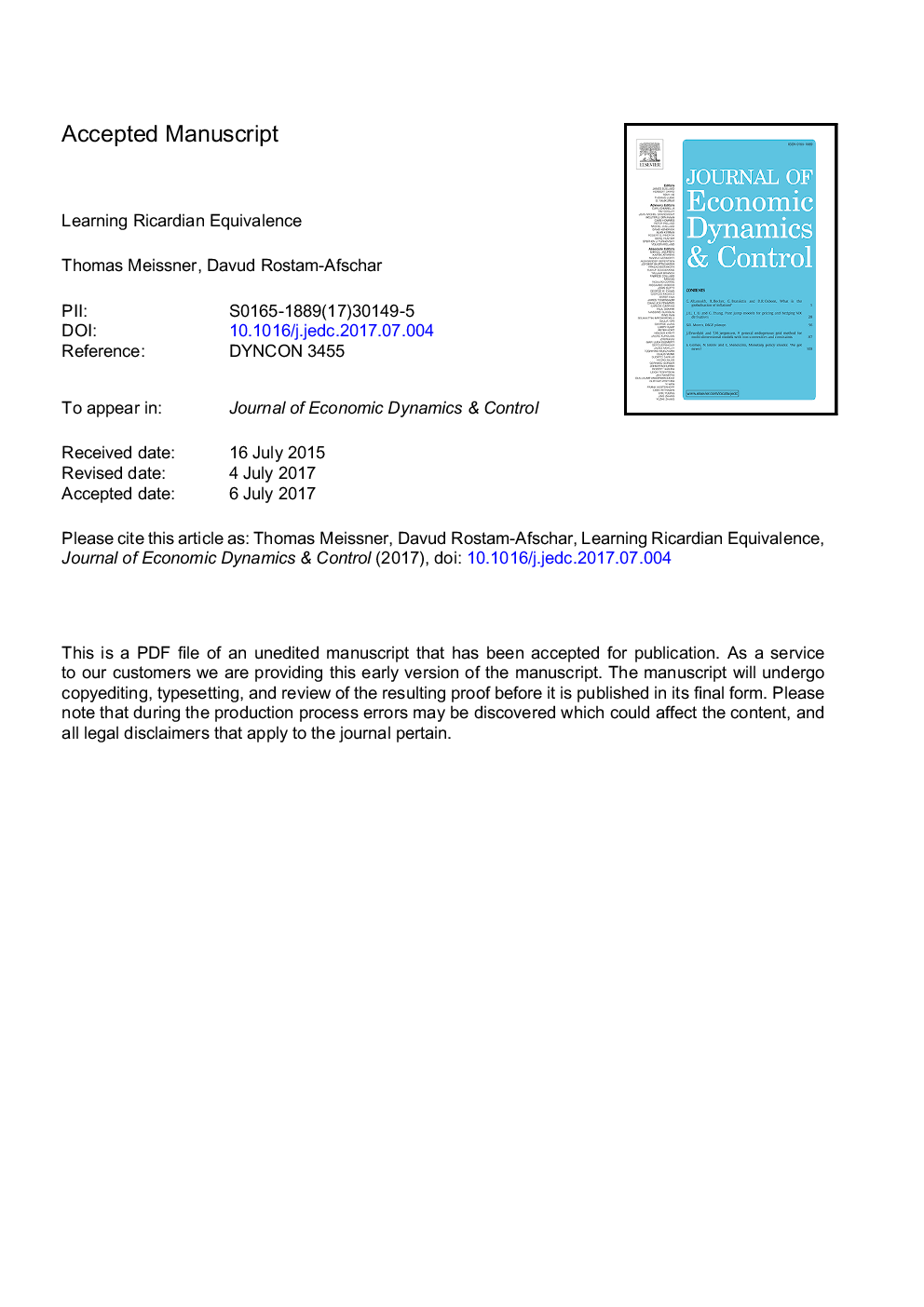| Article ID | Journal | Published Year | Pages | File Type |
|---|---|---|---|---|
| 5097986 | Journal of Economic Dynamics and Control | 2017 | 45 Pages |
Abstract
This paper tests whether subjects learn to comply with the Ricardian Equivalence proposition in a life cycle consumption laboratory experiment. Our results suggest that Ricardian Equivalence does not hold on average: tax changes have a significant and strong impact on consumption choice. Using individual consumption time series, the behaviour of 56% of our subjects can be classified as inconsistent with the Ricardian Equivalence proposition. Classifying subjects according to rules of thumb that best describe their behaviour, we find that subjects switch less to rules that theoretically violate Ricardian Equivalence in later rounds compared to earlier rounds. This implies that some subjects learn to comply with Ricardian Equivalence by changing their consumption strategy. However, the aggregate effect of taxation on consumption persists, even after eight rounds of repetition.
Related Topics
Physical Sciences and Engineering
Mathematics
Control and Optimization
Authors
Thomas Meissner, Davud Rostam-Afschar,
